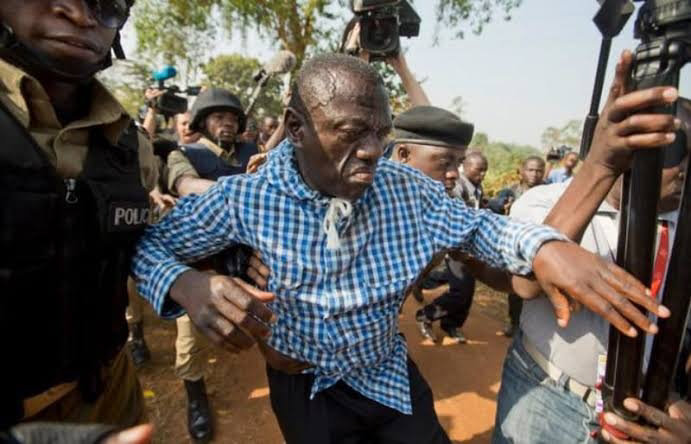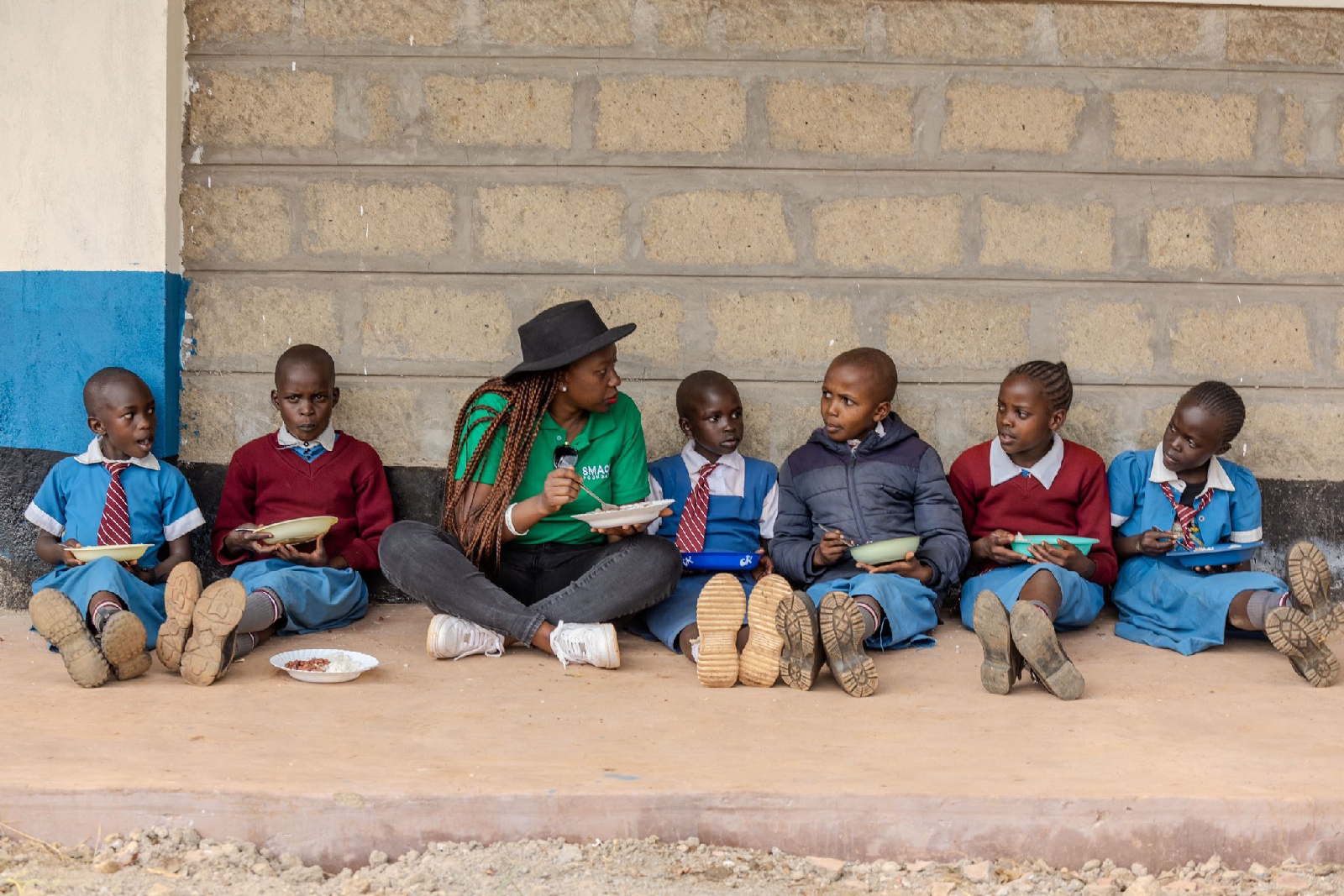Raila Odinga’s Visit to Kizza Besigye: A Hypocrisy Cloaked as Pan-Africanism
Raila Odinga’s recent visit to Uganda’s opposition leader, Dr. Kizza Besigye, has stirred a wave of mixed reactions across East Africa. While some paint this gesture as an act of solidarity and Pan-African brotherhood, the reality beneath the surface reveals a troubling contradiction. Raila’s silence during moments of injustice in his own country—most notably his silence when Kenyans were abducted and silenced—undermines any claims of genuine Pan-Africanism. Instead, this visit appears as nothing more than a calculated political maneuver designed to salvage personal ambition and rebuild public sympathy after a failed bid for the African Union Commission (AUC) chairmanship.
At the heart of the matter is a blatant display of hypocrisy. When innocent Kenyans were abducted, when voices were muzzled, and when democracy seemed to teeter on the brink of collapse, Raila Odinga—once a symbol of resistance and reform—stood silent. His voice, which once roared against injustices in Kenya, fell quiet at a time when it was needed the most. This silence spoke louder than any words ever could. And now, conveniently, after losing his bid for the AUC, he appears at Besigye’s side, trying to project an image of solidarity and shared struggle. But let’s call it what it is: political theater.
The Betrayal of the People’s Trust
There was a time when Raila Odinga embodied the spirit of resistance and justice. He was seen as a champion of the people, standing up to oppressive systems in Kenya and fighting for democracy. But that legacy has been tainted by actions—or rather, inactions—that show where his true priorities lie. His silence during the abduction of Kenyans raises a fundamental question: Where was Raila when the people needed him the most?
In moments of national crisis, leaders are expected to rise above personal ambition and stand firmly with their people. Yet, when it came time to speak out, Raila was notably absent. His silence seemed strategic—possibly designed not to offend certain political powers whose support he sought for his AUC bid, including Ugandan President Yoweri Museveni. This suggests that Raila’s focus was not on the plight of Kenyans but on securing the endorsement of regional power brokers who could help advance his personal political agenda.
Pan-Africanism or Political Opportunism?
True Pan-Africanism is rooted in solidarity, justice, and mutual respect among African nations and leaders. It is a movement aimed at dismantling colonial legacies and uniting the continent through shared struggles and victories. However, Raila’s actions do not reflect these noble principles. His visit to Besigye feels less like an act of genuine solidarity and more like a desperate attempt to regain relevance and sympathy after his political setbacks.
If Raila genuinely believed in Pan-African ideals, where was his voice when democratic freedoms were under threat in his own homeland? Why didn’t he speak out when Kenyan citizens were abducted, harassed, and silenced? You cannot champion justice abroad while ignoring injustice at home. That is not Pan-Africanism; it’s political opportunism.
Chasing Museveni’s Favor: A Questionable Alliance
It’s no secret that Raila’s silence during key democratic struggles in Kenya could be linked to his desire for Museveni’s backing in his AUC bid. By staying quiet on issues that could have strained relations with the Ugandan leader, Raila may have been trying to preserve political goodwill. But in doing so, he compromised the very principles he once stood for.
Museveni’s government has been criticized internationally for suppressing opposition voices, notably those of Kizza Besigye and Bobi Wine. Aligning with such a regime for personal gain raises serious ethical concerns. How can Raila, who once positioned himself as a fighter for democracy, justify cozying up to a leader whose government has been accused of human rights violations?
The irony is glaring: now that his AUC dreams have crumbled, Raila runs to Besigye, seeking to rekindle the fire of solidarity and shared struggle. But the people can see through the façade. His sudden concern for Besigye’s plight is not driven by genuine compassion or Pan-African ideals—it is fueled by a desperate need to rebuild political goodwill and restore a tarnished image.
A Call to Remember Betrayal
The Kenyan people are not blind to these political games. We remember the silence. We remember the betrayal. When leaders prioritize personal ambition over the welfare of the people, they lose the very foundation of trust that once held them up.
Now, as Raila seeks to rebrand himself as a defender of Pan-African ideals, the truth remains: he lost the people when he chose ambition over justice. No amount of political posturing can erase that. His actions have shown that when faced with a choice between standing for the people or advancing personal interests, he chose the latter.
This is a lesson for all leaders who claim to champion the will of the people. The true test of leadership is not how you act when the cameras are on but how you respond when the people’s cries go unheard. Raila’s silence during critical moments was deafening—and unforgettable.
The Hypocrisy of Political Alliances
What’s even more troubling is how easily political alliances shift in the face of ambition. Raila’s pursuit of Museveni’s support highlights a disturbing trend among African leaders: sacrificing democratic ideals for political convenience. How can leaders claim to fight for Pan-African unity when they align with regimes that suppress dissent and undermine democratic freedoms?
This is not just about Raila; it’s a reflection of a broader hypocrisy within African politics. Leaders claim to champion democracy and Pan-African unity while engaging in alliances that serve personal interests rather than the collective good. These political games betray the very people who put their trust in them.
No to Brainwashing: The People See the Truth
The people of Kenya—and indeed Africa—are tired of political brainwashing. We see through the hollow gestures and the carefully crafted images meant to disguise self-interest as public service. Raila’s sudden visit to Besigye isn’t a genuine act of solidarity; it’s a last-ditch effort to regain the trust he willingly sacrificed on the altar of personal ambition.
We say no to this political hypocrisy. We refuse to be brainwashed by leaders who only remember the people when it serves their agenda. The fight for democracy, justice, and true Pan-Africanism cannot be led by those who betray these values when it suits their interests.
A Final Word: Get Back to the People or Stay Lost
For Raila and others who find themselves lost in the pursuit of personal power, the message is clear: Get back to the people. Return to the values of justice, integrity, and true solidarity—or remain lost in the shadows of your own ambition.
The people have not forgotten the betrayal. And no political visit, no matter how well-staged, will erase the memory of that silence.







Comments
Post a Comment